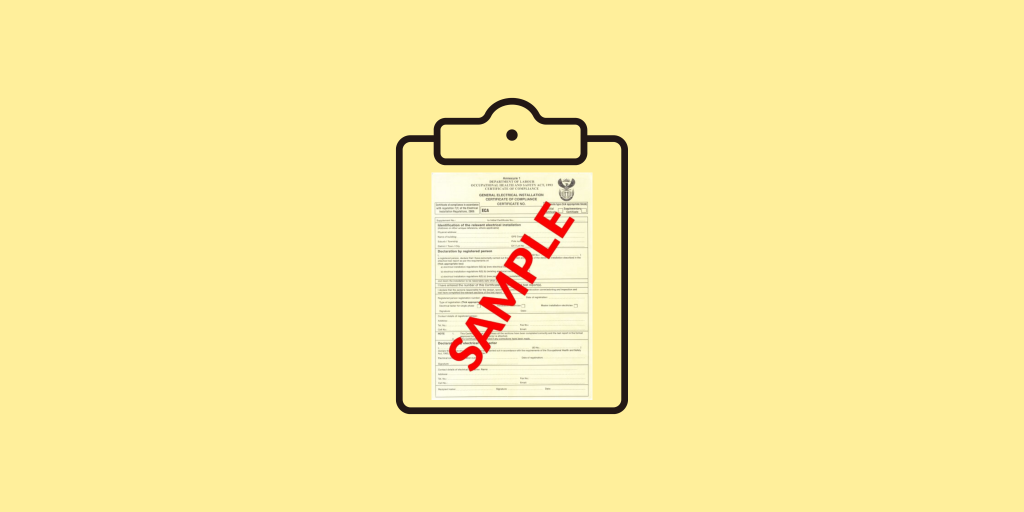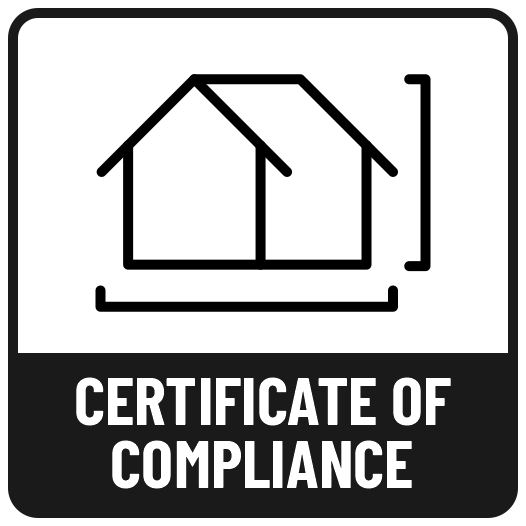A Certificate of Compliance (COC) is a document that verifies that an electrical installation has been inspected and tested by a qualified electrician and found to be safe and compliant with the relevant safety standards and regulations in South Africa.

Below is what is included and excluded on a electrical certificate of compliance:
What a Certificate of Compliance includes
- The name and contact details of the electrician or electrical contractor who issued the certificate.
- The date of the inspection and testing of the electrical installation.
- The address of the property where the installation is located.
- A description of the electrical installation and its components.
- The results of the tests that were conducted on the installation, including insulation resistance tests, earth loop impedance tests, and polarity tests.
- Any non-compliance issues that were identified and the measures taken to rectify them (a quote for the repairs needed).
- The signature of the electrician or electrical contractor who issued the certificate.
What a Certificate of Compliance excludes
- Any warranty or guarantee for the electrical installation or its components.
- Repairs or maintenance needed in order to be compliant to obtain a Certificate of Compliance.
- Repairs or maintenance that may be required in the future.
- Appliances such as stoves, air conditioning, heaters etc.
- A solar installation. A separate certificate is required if you have a solar installation.
- Any sort of back up power setup such as a inverter with batteries.
Is an electrical certificate of compliance compulsory? Read our article here.
